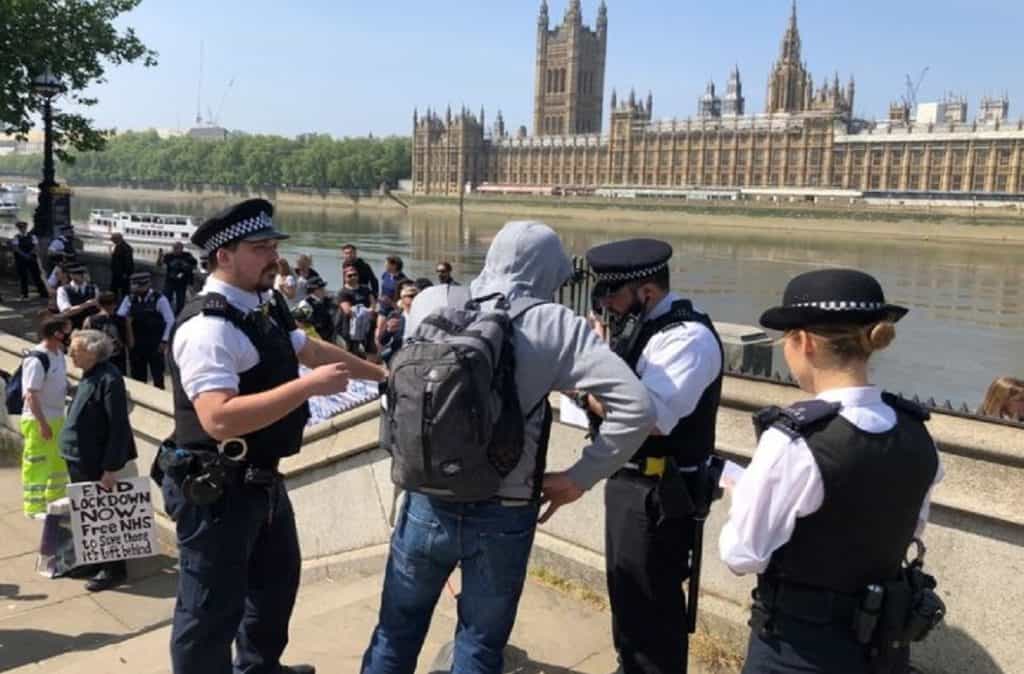By Dr. Rajkumar Singh
Recently, due to the universal spread of coronavirus pandemic, the governments of several countries decided to impose restrictions on free movement and assembling of public under previous passed emergency laws. It compelled a large number of people to live in their houses all over the world.
Many people including agencies favouring freedom movement of citizens have opposed the orders, especially in Western countries where they avail more freedom in every way. They considered government’s taking into quarantine and isolation as interference in their rights. They often quote Human Rights’ Conventions and various Articles- 5 and 11 which give them right to liberty and free movement. Taking advantage of this situation, many governments with minimum law support unlawfully interfering in these fundamental rights in the name of protecting the public health system and right to life.
All institutions and freedom protecting agencies are silent only because of the virus, the real killer of the century. But every one of us feel the pinch of freedom and liberty emerged on account of Covid-19 and has rarely any balance with the ethos of human rights and dignity.
Initial efforts to protect liberty
In the initial phase, the freedom – loving countries of the West were less serious and they delayed in imposing public restrictions, which proved dear for the aged people, having multiple health problems and weak immunity. It is a deadly virus with highly contagious symptoms, easily transmitted from one person to another.
Taking no lesson from China and Italy, the United Kingdom advised the public to follow voluntary restrictions of social distancing and if found Covid-19 symptoms, then self-esteem isolation and quarantine, but soon as the situation deteriorated, they became serious and began to get a signed document to obey the guidelines issued by the Health Ministry of the government. The Government of United Kingdom also passed the Health Protection (Coronavirus) Regulation 2020 which not only restricts right to liberty but also compel them to remain in detention for the purpose of screening and testing if believed to be infected.
The government guidelines also asked people over-70s to live at home in self -isolation for the said periods and obey the voluntary nature of restrictions. For general public too, the U.K. government issued a direction to practise social distancing to minimise the risk of transmission of coronavirus. A detailed description for the period also suggested the public not to visit pubs, clubs, theatres and work from home if not necessary to go office. The instructions given by the government/ local authorities faced general resentment but tolerated in the name of public interest. The effect of Covid-19 targets in deep to senior citizens, children below the age of 10 and pregnant ladies.
Phase of lockdown in U.K.
Keeping in view the deteriorating condition and wide spread of Covid-19, the Government of United Kingdom announced a national lockdown on 20 March 2020 which implemented a drastic set of measures to be followed, restrict individual and social movement with a prohibition on assembling. Under the measures police were granted powers to enforce government’s safety measures to maintain social distancing.
After the announcement, it is supposed that the public will stay at home and follow the precautionary measures for 12 weeks to remain secured from infections. The new Act passed by the government aimed to protect about 1.5 million vulnerable people who are the soft target of Covid-19. For the purpose, it gives vast power to forbid people from assembling and prevention of transmission of coronavirus. However, a balanced view has been adopted while drafting the recent law between necessity and proportionality so that the public resentment may be minimised at the end.
Clash of lockdown and liberty
Amid the fear of Covid-19 and prevailing health emergency the issue of lockdown and liberty became an active subject of citizens’ debate and discussion. It was only due to the nation – wide lockdown that general public was unable to use the preferences of liberty, right to freedom, and free movement from one place to another without any hurdle.
Now the new situation has compelled them, willingly or unwillingly, to bear mask, maintain social distance, regular cleaning of hands and use of sanitisers, avoid religious and ceremonial gatherings, to be safe and put the others in the same condition. The new guidelines issued in the light of the recent passed law prohibited the people in general not to go out without reasonable excuse which include only four: a. shopping for essential items like food and medicine; b. for the purpose of exercise, but only once in a day; c. in a medical condition to help and care a vulnerable person; d. for any other essential and non- essential works where working from home is not possible. In addition, for those who dare to village the direction, a financial fine of 30 pounds was also provisioned.
To make it clearer, Lord Sumption, an ex- Supreme Court judge wanted the police not to make country a “police state”, but at the same time also clarified that public is blind to honey the guidelines modified by the College of Policies (COP) and National Police Chief Council (NPCC), who is responsible for the use of powers enacted under the new law. He also called on the people to be prepare for more restrictions if the pandemic continues or become more severe.
Author: Dr. Rajkumar Singh, Professor and Head, University Department of Political Science, B.N.Mandal University, Madhepura, Madhepura-852113, Bihar, India.
(The views expressed in this article belong only to the author and do not necessarily reflect the editorial policy or views of World Geostrategic Insights).







